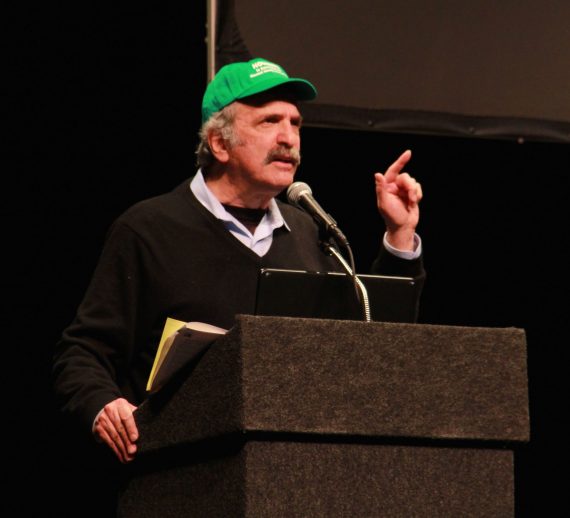
(5-15-17) I bumped into Harvey Rosenthal recently at the National Council on Behavioral Health Care convention in Seattle and invited him to write a guest blog. Harvey is Executive Director of the New York Association of Psychiatric Rehabilitation Services and one of the best known advocates for recovery and peer support services. Given what seems to be a constant battle being waged between the “medical model” that focuses on medication adherence and the “recovery model” that focuses on peer support and other social services, I thought it would helpful to hear his point of view, especially because a new Assistant Secretary of Mental Health and Substance Abuse will soon be appointed.)
Re-Balancing Federal Policy Need Not Have To Choose Between Extremes
BY HARVEY ROSENTHAL
For far too long, advocates for court mandated outpatient commitment have promoted the false narrative that recovery, rehabilitation and peer support providers and advocates don’t want to serve Americans with the most serious conditions…..and that our motivation in supporting the redirection of public funds from hospital to community is simply to capture public dollars for our own purposes. In contrast, these groups have outrageously played upon unfounded connections between violence and mental illness to promote a singular one-size-fit-all prescription of “more meds, more beds and more coercion.”
Along the way, these groups have promoted beliefs that a recovery and rehab focus only applies to the ‘worried well’ and excludes the most distressed, that peer support is inevitably against treatment and medication and that rights advocates are only interested in helping people in the greatest need to avoid such treatment?In recent years, subscribers to these beliefs have succeeded in capturing the attention and support of conservative Republicans, think tanks and the tabloids. They have heavily informed the efforts of self-styled mental health reformer Rep. Tim Murphy and are apparently poised to see the appointment of an apparently like-minded first HHS Assistant Secretary for Mental Health Services.
Advocates across our spectrum must join together to educate both the Senate that will be confirming the first HHS Secretary for Mental Health and let the public know that millions of Americans with the most serious behavioral health conditions would indeed be homeless, incarcerated or dead if recovery providers were not there, offering crisis support and criminal justice diversion, homeless outreach and housing, suicide prevention and early intervention.
We must make very clear that it was the recovery and peer support movements that emerged 5 decades ago to demand that we raise the bar for what is possible for people with behavioral health conditions and for what should be expected from our services. Where would we be today had they not had the courage and determination to do so?
We must make clear that the evidence is clear that housing first and peer support are helping to engage and save our most needy. We must push back when Secretary for Mental Health candidate Dr. Elinore McCance-Katz talks about cutting funds to grow peer services that she claims only “trivialize the devastation” that those who offer peer support know most about.
I can assure you that we are not the ‘worried well.’ That’s why New York is poised to launch a new pilot that will rely on peers, a care manager and a part time nurse to provide immediate, intensive and sustained support to unengaged, distressed individuals who have not previously accepted services and to their families.
There are extremes on both sides of the continuum…bluntly put, those who believe that recovery approaches abandon the ‘sickest’ and those who argue that there is no such thing as ‘mental illness.’ Re-balancing federal policy need not have to choose between one extreme or the other.
To be clear, that’s not where the vast majority in our field and in our movement are today. Many of us, like me, take medication and, at the same time, rely on peer support to find our hope and our health. And a few of us, like me, greatly appreciate the work that groups like the Treatment Advocacy Center have done to shine the light on the terrible consequences of system failure. But while groups like these ask the right questions, they endlessly promote the wrong answers.
We must join forces in the coming months and years to fight to ensure that the regressive views, mean-spirited tactics and falsehoods of the “back to the past” wing do not undo decades of progress and, in doing so, deny recovery, rehabilitation and peer support for Americans in the greatest need.
They need us to stand up for them now.
See Harvey’s address on the false connection between mental illness and violence before a work group sponsored by the National Academies of Science in 2014.



